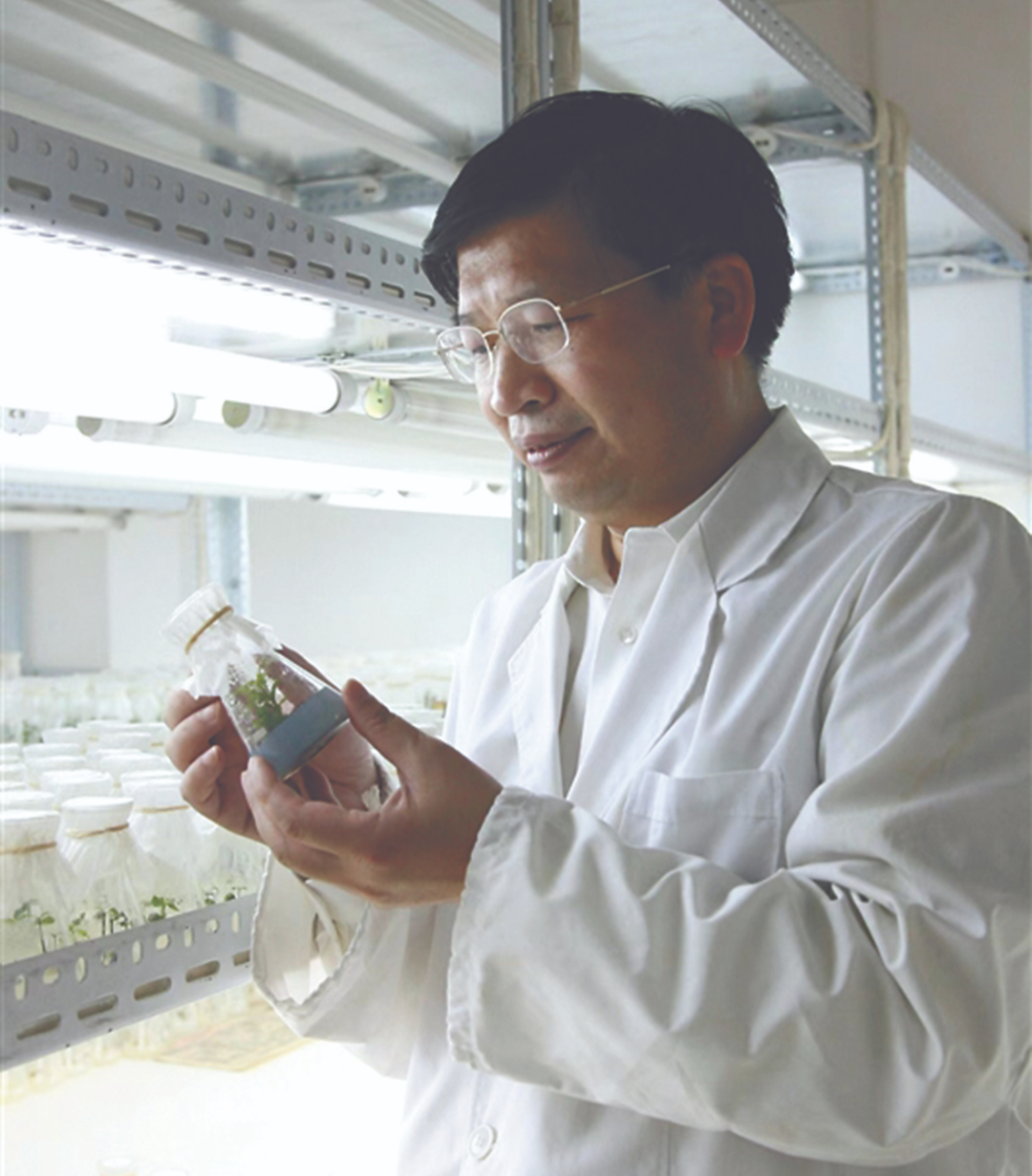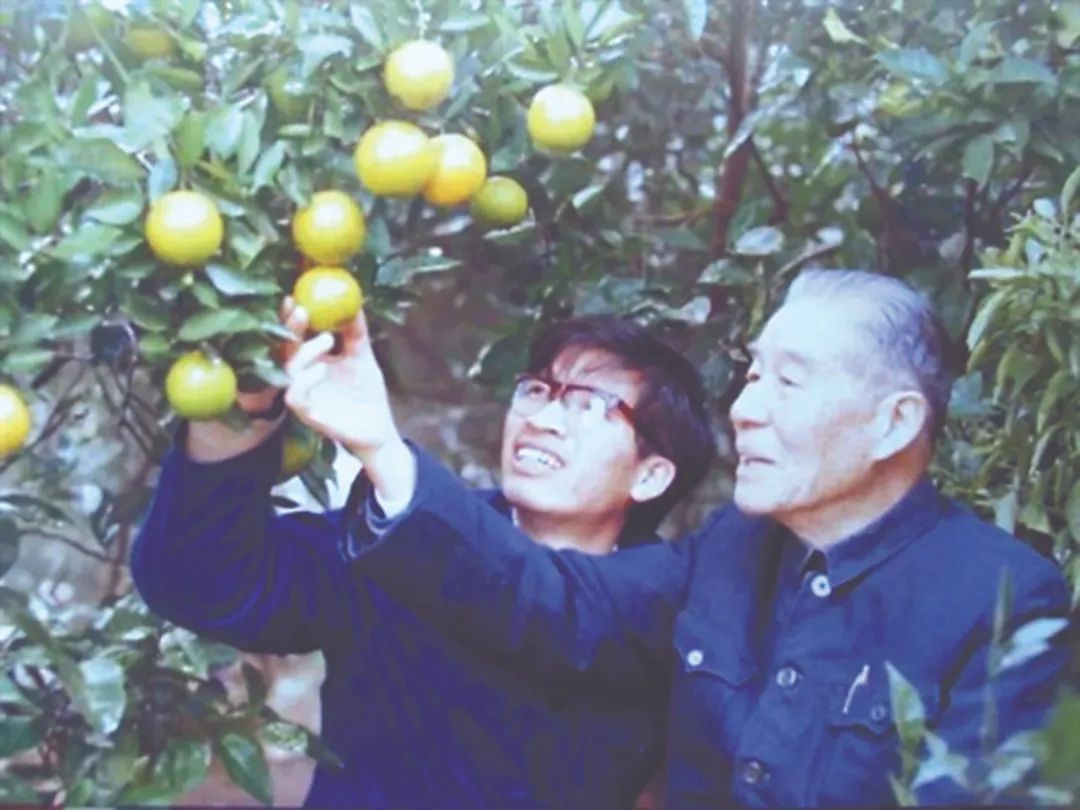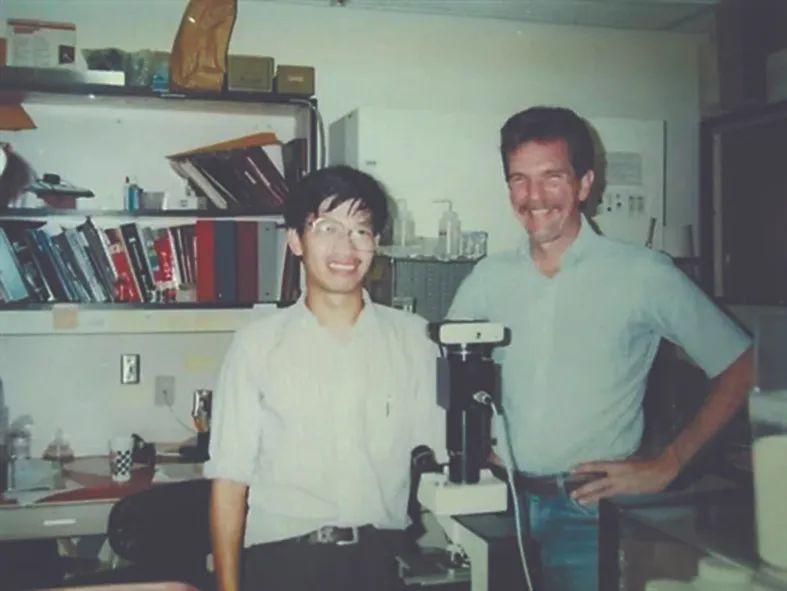Academician Deng Xiuxin: We still have too little support for "green peppers", which makes people worry!
Author:Journal of China Science Time:2022.06.27
Text | "China Science News" reporter Gan Xiao
The title is "Use the original primary quality technology to screen the drought -resistant salt -alkali citrus mutant". A total of more than 10 pages of the application form are handwritten. The picture is a black and white photo of the cells washed by myself ... After more than 30 years, Deng Xiuxin, an academician of the Chinese Academy of Engineering, won the bid for winning the bid. The memory of a national natural science fund project is still clear.
"Obtaining the National Natural Science Science Foundation (hereinafter referred to as the Youth Fund) project not only provides me with a lot of funds for me to launch scientific research, but also the more important significance is to provide me with a rare opportunity for independent scientific research."
As one of the early youth funds, Deng Xiuxin said in an interview with the China Science News recently, "It has almost become a turning point in my life!"
With the support of the Youth Fund, Deng Xiuxin officially embarked on the road of citrus research. Over the years, he has led the team to establish a complete set of citrus cell engineering technology system, which has been successfully applied to germplasm innovation and genetic improvement.
Late navel oranges, early -mature orange, other various citrus ... The agricultural community is recognized that today's citrus is getting more and more delicious, this "citrus academician" is indispensable!

Deng Xiuxin in the laboratory.

In 1986, Deng Xiuxin (left) took a photo with the mentor Zhang Wencai.

Deng Xiuxin (left) took a photo with American teachers in 1989. Interviewee confidence
38800021, "lucky" becomes "concerned"
Back to the 1970s and 1980s, Deng Xiuxin was the "lucky child" of that era -in 1977, he was admitted to the Hunan Agricultural College Horticultural Department of Horticulture and the first college student after becoming the country's recovery college entrance examination; in 1982, he was admitted to Central China. The Agricultural College (now Huazhong Agricultural University) Horticultural Studies, a teacher from the Department of Gardening, is one of the founders of the citrus discipline and Professor Zhang Wencai, a fruit tree scientist; in 1987, became the first PhD in fruit tree science in my country.
In the year he graduated from his Ph.D., the National Natural Science Foundation of China established a youth fund specializing in cultivating young scientific researchers.
For Deng Xiuxin, everything is just right.
After discussing Mr. Deng Xiuxin and Mr. Zhang Wencai, he decided to apply for youth funds with the title of "using primary quality technology to screen drought -resistant salt -alkali citrus mutations".
In June 1988, Deng Xiuxin went to Beijing to participate in the project defense from Wuhan. "Like the mood of going to the college entrance examination that year, I was not nervous at all, and I went."
At that time, Deng Xiuxin, who was less than 30 years old, had no concept of this defense, only his enthusiasm for science.
According to the current perspective, it was a defense full of "ancient and early flavor": the application for more than 10 pages was handwritten by Deng Xiuxin, and the photos of the primary body were also rinsed in the dark room. The outline of the defense scene of a training school in Changping was written by him ...
Soon after, the project applied for Deng Xiuxin passed. The project approval number was 38800021, which was approved by 30,000 yuan. He was overjoyed: "You know, our salary at that time was only sixty or seventy dollars.
The original three -year youth fund project had just run for half a year, and a new opportunity appeared. On July 10, 1989, he was sent to the University of Florida at the University of Florida as a visit to the University of Florida as a visiting scholar for a visit.
There, the research conditions of the laboratory and the development of the citrus industry made Deng Xiuxin envious: "The laboratory needs a reagent to make a call to send it.
For a young man who has just joined the job, it is more attractive to work opportunities in the United States.
"If you want to stay in the United States at that time, it is easier to get post -doctoral job opportunities, with an annual salary of 20,000 to 30,000 US dollars." One year passed quickly, and at the end of the visit, Deng Xiuxin faced choices.
"I didn't think so much. My first reaction was that not only the cost of studying abroad was provided by the state, but more importantly, it also assumed a youth fund project, and I couldn't hold the country or owe the country."
With this simple idea, Deng Xiuxin was like a kite flying into the blue sky, and was "dragged" by the Youth Fund.
On July 10, 1990, he returned to China on schedule and was not bad a day.
Recalling this past, Deng Xiuxin sighed: "Inadvertently, the youth fund has become a" concern "of my motherland, pulling me back to the life track of citrus. Fund, I don't know where and what will I do now. "
"Question" drive, achieve "China Orange"
Deep in Deng Xiuxin's heart, the country's love also allows him to always care about the national industrial needs in the development of scientific research. "Entering agricultural scientific research, we should adhere to the 'problem' driver." He emphasized.
As early as when applying for a Youth Fund, Deng Xiuxin had begun to practice this concept. In the 1980s, most of the citrus industry in my country was in the coastal areas of Zhejiang. The salt -alkali problem was more prominent. In addition, there were constant frost damage. The first -class problem that increased production was how to overcome these obstacles and plant good fruit trees.
During his PhD, Deng Xiuxin captured the native training of citrus and plant regeneration.
"At that time, the 'native quality' technology was the cutting -edge technology in the field of life sciences, and few laboratories in the country could do. Especially in wooden plants, our laboratory in China Agricultural University was the lead." He said, " To put it simply, this technology is to improve the traits of plants at the cell level, thereby cultivating new varieties efficiently. "With the development of the experiment, he found that the seemingly perfect design in the laboratory is often difficult to apply to the orchard.
For example, the emergence of cold resistance and salt resistance has paid the cost of energy, causing a decrease in citrus production or worse quality.
At the same time, my country's industrial structure has changed, and the position of citrus planting has gradually shifted from the coast of Zhejiang to the central and western parts such as Hunan, Hubei, Guangxi, and Yunnan. route.
Also in the 1980s, with the improvement of people's living standards, the market put forward new demand for citrus. "Take a bite, spit a lot of seeds, affect the taste, and it doesn't look very elegant." Deng Xiuxin said.
This new demand was also seen by Professor Zhang Wencai, who was over 80 years old.
He gave Deng Xiuxin a task -can he remove the citrus seeds through the method of cell engineering and solve the problem of more citrus seed seeds in my country and turn into a variety of non -nuclear (seed)?
"This is both a basic study and innovation of breeding methods. After continuous exploration, we must go out of a way that others have not walked." Deng Xiuxin said.
For the next 40 years, he led the team to continue to tackle this basic scientific issue. Over the years, he has won the support of the Natural Science Foundation of China in 19 countries, covering most types, including the projects, key projects, National Outstanding Youth Science Fund projects, and innovative research group projects.
In 2015, through continuous attempts, they finally used cell fusion technology to establish a new way to cultivate a new nuclear variety, and to cultivate a nuclear -free variety- "Hua Kou No. 2" and "Hua Kou No. 3", which greatly improved Breeding efficiency.
Not only that, in recent years, they have also completed the first citrus genome sequencing and 8 different citrus type genome sequences, discovering genes that control citrus multi -characteristic genes such as citrus and red, establish a genetic conversion system, and design for Chinese citrus into design. The breeding era laid the foundation.
The most practical problem of "pedal", the most cutting -edge science of "top of the head" not only becomes Deng Xiuxin's successful "password", but also promotes the level of basic research on Chinese citrus into the forefront of the world.
Today, the "Chinese Orange" with thin flesh, sweet taste, less nuclear nuclear, and good appearance has become a beautiful scenery, benefiting the public.
For the future agricultural science, Deng Xiuxin's point of view is that "Agricultural Science has reached the crossroads that transform the scientific paradigm.
As a discipline of practical and applied, researchers should walk out of the laboratory, go to the field, orchard, and farm, where to find basic scientific research issues. "
Increase funding, young people are also increasing
Looking back at the life of scientific research in the past 40 years, Deng Xiuxin's most memorable is still the youth fund as the starting point. "It's not just a sum of money, but also give me the opportunity to carry out scientific research independently." He told the China Science News.
At that time, China's scientific research management had not established the responsibility system (PI), and scientific research funds were allocated from top to bottom to a research room.
"Young people have ideas, and it is difficult to do something independently." Deng Xiuxin said, thanking the youth fund to open a door to independent research for him.
When communicating with scientists of the same age, Deng Xiuxin found that everyone had a common feeling. "The cultivation and support of a group of young people has taken the road of scientific research independently. This group of people has become the main force of basic research in China today." He was very pleased.
It is such a personal experience that Deng Xiuxin, who has become the "veteran" of the scientific research community, has always been concerned about the growth of young scientists.
"In recent years, I have observed a more disturbing thing. The young scientific researchers in colleges and institutes have less smiles on the face of young scientific researchers. I often hang the 'lying' 'lying' lying ', and even do this. "Deng Xiuxin said seriously.
Why is this? His reflection is, "We have too little support for young scientific researchers!" In recent years, despite the increasing investment in scientific research funds, young people engaged in scientific research have also increased.
In Deng Xiuxin's words, "the" cake "that everyone gets is less."
A more common phenomenon is that a doctor who has not studied abroad and has just graduated, if there is no project support like youth funds, it is difficult to do scientific research independently.
They generally start from the teaching assistant. At the most creative and enthusiastic time, time and energy will be squeezed by teaching and other administrative affairs, and scientific research can only be "followed".
After the "boiled" became an associate professor, their creativity was reduced and began to be involved in the "point" of the article, and gradually deviated from the original intention of overcoming scientific issues.
"The environment of this 'inner volume' allows many young researchers to choose 'lying flat'." Deng Xiuxin admitted.
To this end, Deng Xiuxin believes that the youth fund should continue to support the "green peppers" to carry out basic research on topic selection, cultivate their ability to independently host scientific research, and play a role in cultivating the successor of basic research in my country.
"Now the competition of the Youth Fund is extremely fierce, and the funding rate is less than 20%." In this regard, Deng Xiuxin called for it to create conditions as much as possible, increase the funding rate of youth funds, and provide more "green peppers" to provide a good environment to avoid them from them to avoid them from them. "Lie flat" in the "inner volume". "China Science News" (2022-06-27 The 4th edition of the 4th edition of the Natural Science Foundation of China was originally titled "Increasing the funding of youth funds," green peppers "do not" lying down "!")
Edit | Zhao Lu
Capture | Guo Gang

- END -
Scientists find giant bacteria visible to the naked eye

According to 24 French reports, a study published on the magazine published on the...
There are materials for making perfect batteries, how can I make it out?

Living in an era of high dependence on smartphones, do you have a little mobile ph...